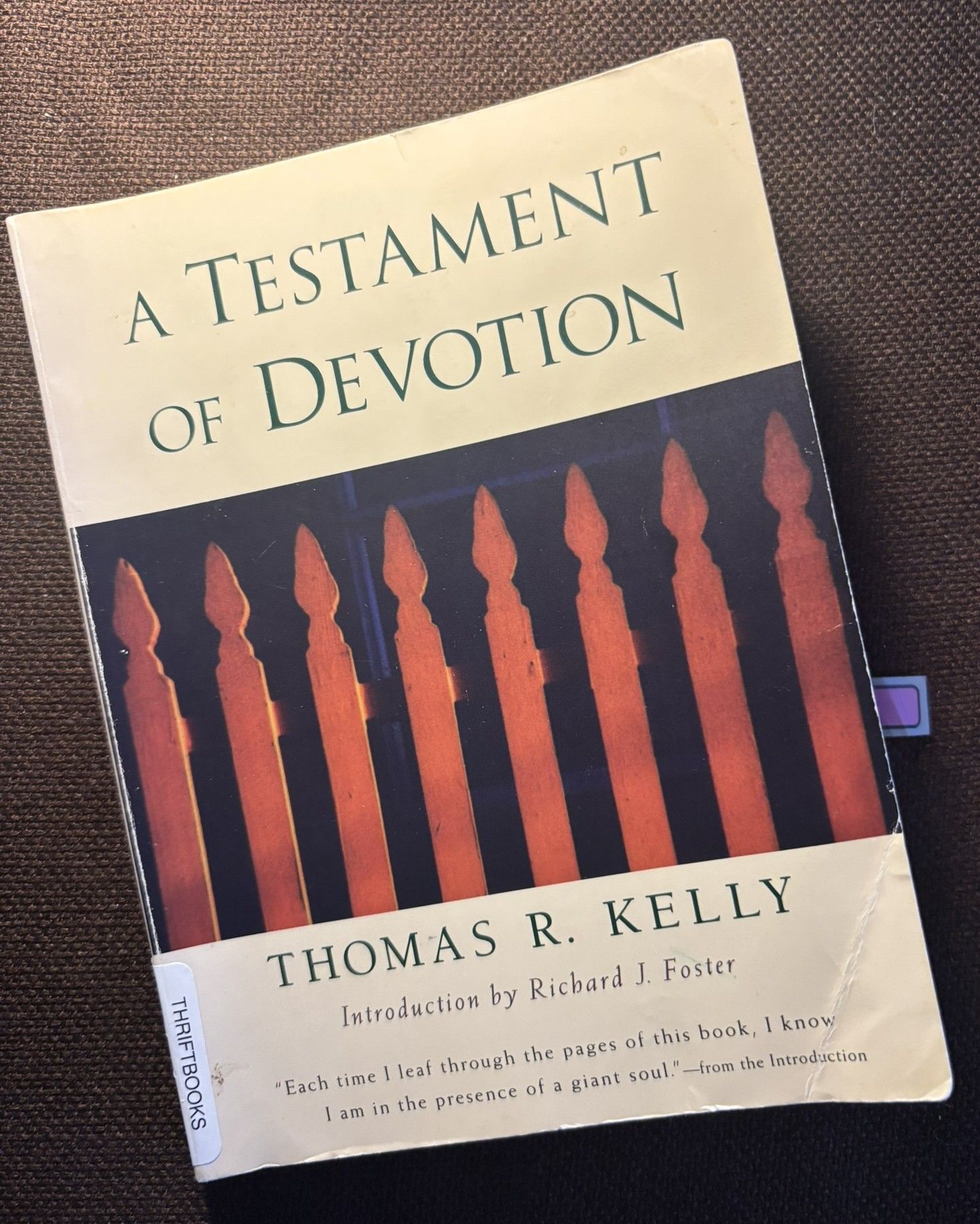Whack-A-Mole
The minute I think I’m developing a pretty good exercise routine; I find myself eating sugar cookies.

“And this must be our business, to strive to overcome ourselves, and daily to gain strength over ourselves, and to grow better and better.”
~Thomas à Kempis, The Imitation of Christ, p. 5
The development of myself, to grow, that is, as à Kempis recommends, “better and better”, seems like “whack-a-mole” most of the time for me. The minute I think I’m developing a pretty good exercise routine; I find myself eating sugar cookies. The minute I think I’m developing a pretty good nutrition regimen; I find myself skipping my morning stretching exercises. The minute I think I’m developing a pretty good haiku writing practice; I find I haven’t written an essay in weeks.
When I get a handle on one way I want “daily to gain strength over” myself, well, something else I thought I had under control just isn’t.
Benjamin Franklin, as he took on “the bold and arduous Project of arriving at moral Perfection”, found the same problem. “I soon found I had undertaken a Task of more Difficulty than I had imagined. While my Attention was taken up in guarding against one Fault, I was often surprised by another. Habit took the Advantage of Inattention. Inclination was sometimes too strong for Reason.”
Franklin, seeking moral perfection, had higher goals than I do. I’d simply like to stop eating a whole package of graham crackers just before going to bed.
Franklin had higher aspirations. “I wish’d to live without committing any Fault at any time; I would conquer all that either Natural Inclination, Custom, or Company might lead me into. As I knew, or thought I knew, what was right and wrong, I did not see why I might not always do the one and avoid the other.”
I have a hard time remembering when Valentine’s Day is.
Wait….Monday? OMG!
I like to write but I have found it hard to multi-task lately. Over the last months I’ve added a little haiku writing-creating-producing-sending practice to what I do daily, and it’s enjoyable for several reasons. An outcome of this has been, unfortunately, a diminution of my daily essay writing routine. By the time I’m done haiku-ing, my brain is ready to take on something less demanding than writing an essay, and the day has moved on – I have other matters to attend to, including work I actually get paid to do.
But I won’t have it. I love to do both. So I will.
Routines, habits, and practices – and their power to transform lives – fascinate me. At a time when so much of our lives seems out of our control, these methods of self-discipline give us a measure of power over matters we can influence, that is our own lives. I generally agree with Virginia Woolf, who wrote in 1929 that “Habits gradually change the face of one’s life as time changes one’s physical face; & one does not know it” (as quoted in Daily Rituals: Women at Work, iiix). One small quibble with Ms. Woolf (who I’m indeed afraid of, of misreading at the least) – although our habits may indeed be silently modifying aspects of our lives, we need not countenance their makeup. We can change our habits to better change not only the face of our lives, but also to reveal and deepen our connection to the the heart, soul, identity, and being of our lives.
The subtitle of Mason Currey’s Daily Rituals: Women at Work, is “143 artists on how they paint, write, perform, direct, choreograph, design, sculpt, compose, dance, etc.”. Part of my own daily ritual has been to read one of these women's stories each morning. Not long ago, for example, I read about Patti Smith. She usually writes in bed. She gets up, perhaps completes some exercises, feeds her cat, goes to get coffee with a notebook, and writes for a couple of hours. Then she will “just roam around. ‘I try to take long walks and things like that, but I just kill time until something good is on TV’” (p. 299), she says.
Before this book, I read Currey’s other book, Daily Rituals: How Artists Work, in the same manner. There, he featured 161 artists (novelists, composers, philosophers, poets, painters, and more), and mostly men. After I had finished this latest book, then, I had spent over three hundred mornings with Mr. Currey.
Mason, it’s time you published the next one.
Here are three quick examples of writing practices one finds in Daily Rituals: Women at Work. Octavia Butler’s advice to young writers was to “write every day, whether you feel like it or not. ‘Screw inspiration’, she said” (p. 3). Louisa May Alcott, “wrote in fits of creative energy and obsession, skipping meals, sleeping little, and scribbling so furiously that she eventually had to train herself to write with her left hand to give her cramped right hand a break” (p. 49). Edna Ferber, starting when she was twenty-one and then throughout her life, “sat down at the typewriter every morning at 9:00 a.m. and aimed for one thousand words a day” (p. 85). Over fifty years she wrote twelve novels, nine plays, two autobiographies, and twelve plays.
I imagine Octavia, Louisa May, and Edna let some parts of their lives slip while they concentrated on their regular writing practice. Maybe they ate whole rolls of Oreo cookies, as I am wont to do. (There are many juicy details of the artist’s lives in Currey’s books.)
I’m more like Mr. Franklin, trying to develop a number of "better and better" qualities, it seems, instead of a single, concentrated effort. However, I am woefully like his own description, which I repeat here:
“But I soon found I had undertaken a Task of more Difficulty than I had imagined. While my Attention was taken up in guarding against one Fault, I was often surprised by another. Habit took the Advantage of Inattention. Inclination was sometimes too strong for Reason.”
But he didn’t stop trying, did he?
And neither will I.
I can write both poetry and essays at the same time.
In the meantime, could you pass me the cookies?
Sources/Resources
à Kempis, T. (2013). The Imitation of Christ (R. Challoner, Trans.). Tan Books & Pub.
Currey, M. (2019). Daily rituals: women at work (First edition. ed.). Alfred A. Knopf.
Currey, M. (2013). Daily rituals: how artists work (First edition. ed.). Alfred A. Knopf. Cover image 978-0-307-27360-4.jpg
Franklin, B. (1995). The art of virtue. In The means and manner of obtaining virtue (pp. 22-41). Penguin Books.











